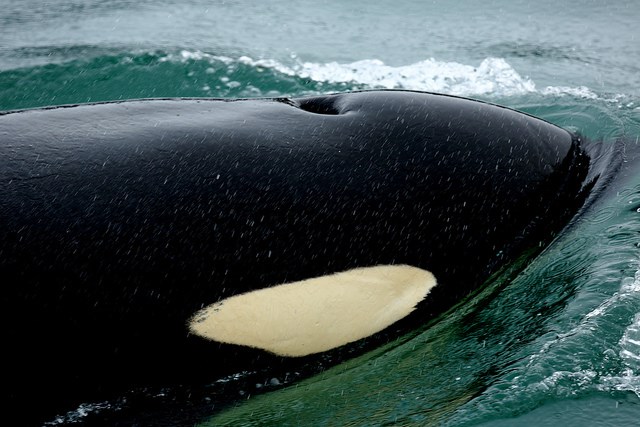Noise from human activities could be harming the underwater environment for orcas, including those who pass through Howe Sound.
Three University of Victoria researchers have been awarded $935,000 to study the impact of underwater noise on resident killer whales outside Victoria. The study will investigate whether human-caused underwater noise impacts the ability of these orcas to communicate and if it interferes with the echolocation they use to detect prey. Sound could also affect the behaviour and physiology of the chinook salmon they eat.
Transient orcas have been returning to Howe Sound in recent years after a long absence. Local photographer Rich Duncan says he's been seeing them the last several years whenever he's out on the water at his cottage. He's even boated, kayaked, and swam with them.
He said since the area has been restored, he's been seeing them more frequently.
"It's great to hear them breathing… its really cool to see their eyes because their eyes are quite large, you can actually see them looking at you," he said.
Duncan has seen over a thousand whales in his lifetime, he says. He's seen them every summer the last seven or eight years, but he never gets tired of watching them.
"It's not something a lot of people get to see, so I feel honoured," he says. "I'd like to see them more, but the way our government is treating Howe Sound, I don't see that happening. Orcas are dying off in this area."
"It's stupid: we've destroyed Howe Sound for years, and we've restored it… (but) it's getting harder and harder to see them because of what's going on in the area."
Dominic Leblanc, federal minister of fisheries and oceans, announced this month the government would be funding the study as part of $3.1 million being spent on research into underwater noise.
Only 76 whales remain in the southern resident population. Low numbers of chinook salmon are the primary cause of the declining orca population, but noise disturbance from boats and other marine activity are contributing factors. Researchers hope the study will help the understand the situation better.
"We're thrilled by this opportunity to undertake important research into human impacts on the southern resident killer whales and their prey," says UVic fisheries ecologist Francis Juanes, who is the lead investigator for the chinook salmon research.
"We anticipate contributing significantly to understanding the stressors affecting these magnificent marine mammals and, ultimately, to mitigation measures to help ensure their long-term survival and success."
Coastal geographer Rosaline Canessa will be leading the study, and marine acoustics specialist Stan Dosso will lead the echolocation research.
Video by Gary Cullen of about 50 whales in Active Pass.



